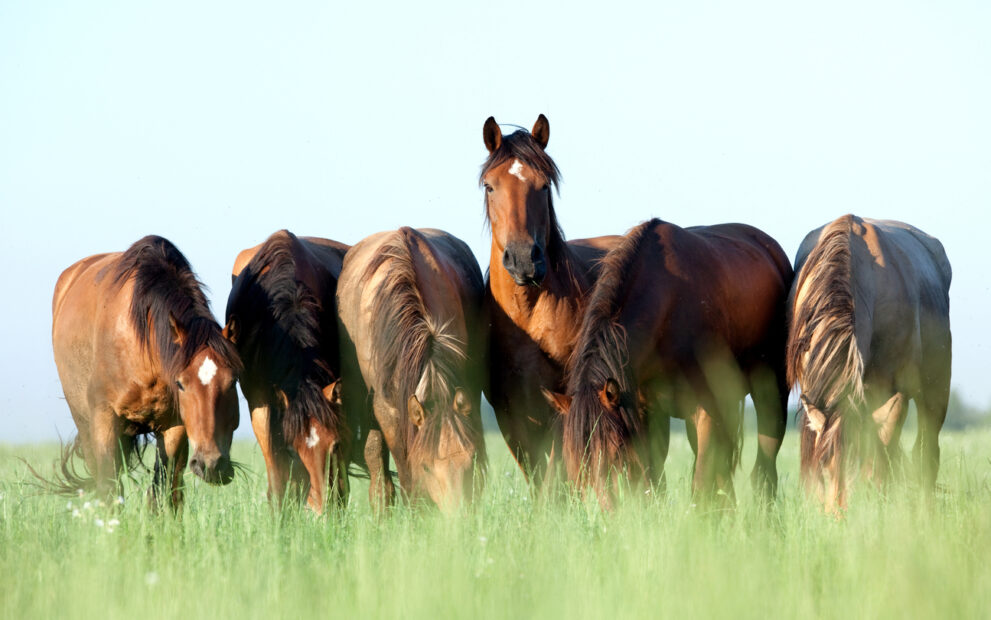As vets we often get asked – “should I worm my horse?” Now is the time to start thinking about that exact question!
It’s Spring! Lambs are being born, daffodils flowering and horse worm lifecycles kicking back into life.
Now, are you aware of the types of worms that can affect your horse? The main types are roundworms, large redworms, small redworms, tapeworms, pinworms and bots. They all have very different lifecycles and parts of the horse that they infect. These worms can cause symptoms in your horse such as colic, weight loss and diarrhoea and therefore it is important to have a plan on how to control those little critters.
How do I find out if my horse has worms, I hear you ask? There are great tests now available which allow you to determine if your horse has a worm burden that could be affecting their health. These are:
- Worm egg counts
- Tapeworm saliva tests (or blood tests)
- Small redworm blood test
We advise having these tests done as we now know that we have used too many wormers in the past. This has led to resistance to worming drugs building up in the worm population. Worm resistance means that when we need to treat a horse for disease caused by worms, it makes it much more difficult as treatment can be ineffective. Routine testing allows us to detect the horses that actually have the higher worm burdens and therefore need to be treated. It also allows us to minimize use of wormers in all other horses – Hurrah!
Yes, we understand how that sounds – your horse may have a small worm burden and we recommend NOT worming! This allows us to take advantage of a thing called refugia. This helps us minimize resistance build up in worms. And don’t worry, your horse will not come to any harm from a low worm burden – it is kept in check by their healthy immune system. However, it is vital that you always keep testing ALL horses so that we can also see if anything changes. Horses that have poorer immune systems e.g. young or old horses may need to be tested more frequently and may require more treatment as their immune systems cannot keep the worms in check.
Let’s say you are new to testing- when is the best time to start? As we are coming into Spring, the best time is to start NOW. We recommend carrying out a worm egg count every 8-12 weeks over the spring-autumn period. This usually means 3-4 worm egg counts over this time. At the start of spring and autumn we would also recommend a tapeworm saliva test. Once you receive your results from these tests, you will either be advised to worm or not. You will also be advised what wormer would be best to use for your horse.
On the topic of horse wormers, it is vital your horse receives the correct dose. This dose is based on your horse’s weight. While you may think it is easy to guess your horse’s weight, it isn’t and we would advise against this. We would recommend you use a weigh-tape or better still, a weighbridge so that you have a much more accurate idea of your horse’s weight. Under dosing is really bad and promotes wormer resistance.
In addition to testing your horse for worms, it is really important that you poo pick the area that your horse grazes. This needs to be done twice a week. It has been shown that this alone significantly reduces your horse’s exposure to worms. Combining these 2 management tools alone will massively reduce your horses chance of needing to be wormed and therefore less drugs going into their bodies – YAY!
Our selection of horse wormers and worm egg count packs can be found here







